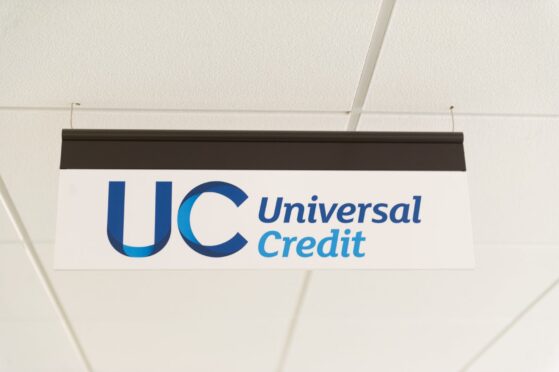A benefits cheat swindled thousands of pounds from the taxpayer by inventing fictitious blind children in Inverness.
Colin Taylor made Universal Credit claims by inflating the number of children living with him and managed to boost his payments by pretending they were disabled and blind.
Between February 3 2018 and April 3 2019, Taylor fraudulently obtained more than £4,000 by taking advantage of the system designed to help those in need.
Since being caught out, the 34-year-old has started making repayments of his ill-gotten gains, but only in the form of deductions from continuing benefit claims.
A Crown narrative of the offences stated: “Universal Credit is an online means-tested benefit and a claimant must access their account online to maintain their own account and declare any change in their circumstances.
“A claimant is required to confirm and agree that the answers given to the questions are correct and complete.
Uncertainty over how much money remains outstanding
“Following verification of identify, a claimant can make a claim for an advanced payment.
“The accused confirmed his circumstances as true and then amended his circumstances, adding false housing costs, fictitious children or children who did not live with him and obtained advance payments of Universal Credit.”
On February 4 2018, the accused claimed Universal Credit declaring that he was unemployed, single and had one dependent child.
He claimed he had monthly housing costs of £420 for an address on Essich Gardens in Inverness.
Days later on February 8, he applied for an was awarded a Universal Credit advance payment of £1,015.73 based on the circumstances he declared.
On February 20, Taylor declared a change in his circumstances from February 4 in that he now had three children living with him – and that one of them was blind.
Based on this, he received a further £161.64.
In fact, two of the children mentioned did not live with him, meaning Taylor received a total of £1,177.37 he was not entitled to between February 4 and March 3 2018.
Then, on May 8 2018, Taylor claimed Universal Credit and declared he was unemployed, single and had two dependant children living with him.
Again, Taylor claimed one of the children, not the same one as previously, was blind and in receipt of a higher component of disability living allowance.
Only one real child living with him
He claimed he had monthly housing costs for the Inverness address of £850.
The same day, Taylor was awarded two advance payments of £1,200 and £325.44 based on the circumstances he described.
The truth, however, was that Taylor only had one child living with him at this time, and that they were not registered blind.
His real housing costs at this time were just £420.93.
These claims amounted to £1,525.44 in benefits he was not entitled to between May 4 and June 3 2018.
On March 12 2019, Taylor claimed Universal Credit, declaring he was employed on a zero-hours contract, single and had one dependent child living with him.
Again he declared his monthly housing costs were £850 for the same Inverness address.
On the same day, he applied for and was awarded an advance Universal Credit payment of £1,074.65 based on these circumstances.
Taylor claimed three different children living with him were blind
The very next day, Taylor declared a change in his circumstances in that he had two dependent children living with them.
He claimed both children were in receipt of the higher component disability living allowance and that one of them, the third different one now, was blind.
Taylor was awarded an advance payment of £450.72 based on this change.
However, the truth at this time was that Taylor lived alone with housing costs of just £423.95, and that he had claimed £1,525.37 in benefits he was not entitled to between March 4 and April 3 2019.
Across the three charges, Taylor claimed £4,228.18 he was not entitled to.
The court heard monthly repayments were being made in the form of deductions from his ongoing Universal Credit entitlement.
Taylor, now of Great Western Road, Aberdeen, admitted three charges under the Social Security Administration Act 1992 of knowingly making false representations in benefit claims.
Defence agent David Sutherland said his client was not personally present for the hearing at Aberdeen Sheriff Court as he had gone offshore the previous day.
Sheriff Lesley Johnston deferred sentence until next month for Taylor to be present and for clarification on how much money had been repaid.
For all the latest court cases in Aberdeen as well as crime and breaking incidents, join our Facebook group.
